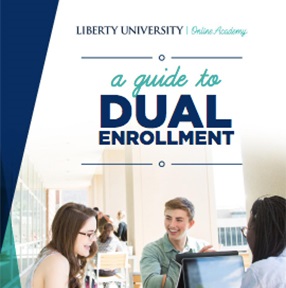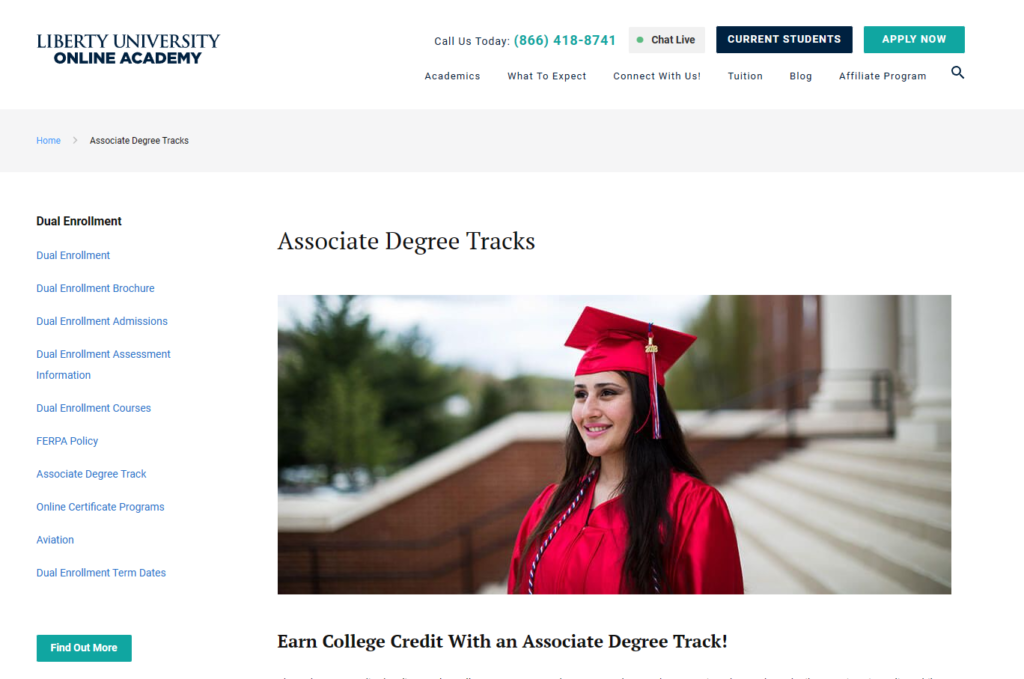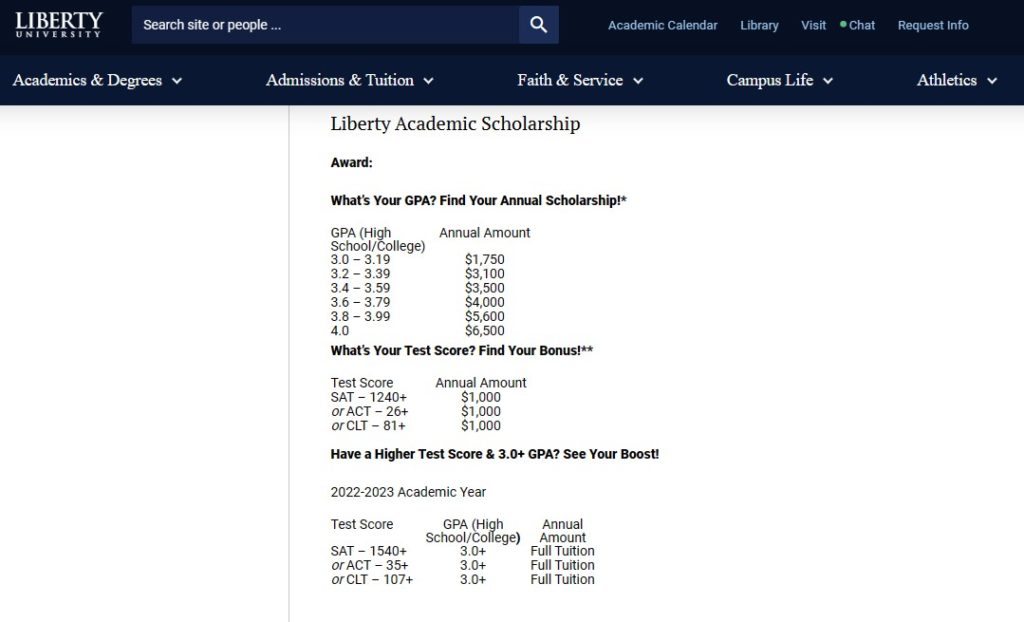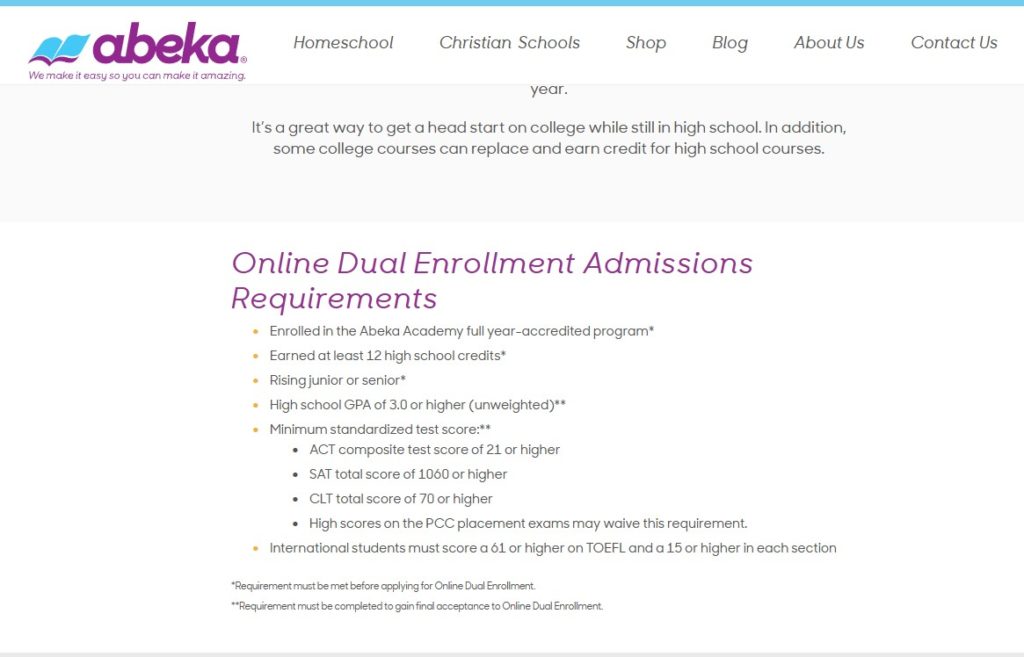Dual Enrollment and Homeschool
College classes can replace curriculum
High school students may have the option to complete some of their subjects through college classes. This is called dual enrollment. It means that a student is enrolled in both high school and college simultaneously, to obtain both high school and college credit at the same time.
Generally, students need to be at least age 16. However, in some cases, students can start earlier if they score high enough on an IQ test to be considered “gifted and talented”.
Students can take college classes for credit, or they can take a class as an “audit class”, which means that they will not get college credit for the class. In Garrett County, students who attend Garrett College can do so for free on the Commissioner’s Scholarship if they are taking a credit class. However, audit classes are not covered by the scholarship. And continuing education classes are also not covered for students doing dual enrollment. Therefore, a parent would need to pay cash for an audit or continuing ed class. Check with your local college for offerings in your area.
Parents who enroll their students in dual enrollment classes can save the cost of purchasing a homeschool curriculum for that class, and the student could earn credit toward a college degree after they graduate.
College classes in high school saves money
It is becoming increasingly more popular among homeschooling families for high schoolers to try to obtain at least 24 college credits before graduating high school, which gives students a head start on a college degree. Additionally, some homeschoolers are striving to obtain an AA degree during their high school years, so that they will graduate with both a high school diploma, and a college degree. Liberty University Academy, among others, offers this type of a diploma.
Most of the colleges and universities offer a discount in enrollment fees for students who are still in high school. For example, students who want to go to Liberty University Online pay only $599.00 plus fees for a three-credit class taken in dual enrollment, whereas the same class is well over $1000.00 after high school graduation. One of the reasons for this enormous discount is the fact that students cannot receive the Pell grant or other financial aid while they are still in high school
Alert! Heed the 24-credit warning
There are some very important things to take into consideration, though, before making the leap into college classes.
First, many of the scholarships offered to freshman by universities and organizations are not available to students that have more than 24 credits. For example, some colleges offer a full tuition scholarship for students scoring high enough on the SAT/ACT and having excellent grades, but if a student already has over 24 college credits, that opportunity goes away.
Parents can get around this problem by having the student audit college classes in high school once they reach 24 credits, but classes won’t be free even if your community offers free community college, so there would be cost to the parents.
Be aware of whether credits transfer
Additionally, many college classes taken at one college may not transfer to another one, especially if the class is not in the student’s chosen major. Students may be able to take classes at a community college for free, but if the student is planning to attend a four-year university after high school graduation, those classes may not transfer. Therefore, it is paramount that families know where the student plans to attend college after graduation and find out if classes the student is considering transfer before taking them. Most colleges have something called a “transfer calculator”, which you can use online to determine what community college classes the university will take. Simply call the university and ask how to find their “transfer calculator”. Also, find out what classes a student needs in the major he/she will be taking to be certain the classes fit in that major.
A worst-case scenario would be that a child takes over 24 credits during high school, loses most scholarship opportunities, and has none of the credits transfer.
But what if a student wants a particular class, but it doesn’t transfer? There is nothing wrong with homeschooling families enrolling a child in a dual enrollment class in high school that will not transfer or that does not fit in the student’s chosen major, as long as the family understands that the class is being used as only a high school class, and not as toward the advancement of a degree. It means that the student will pay more for his/her degree later, but the rewards of taking something the student wants to learn in high school could outweigh that loss. Keep in mind, though, that even if the class doesn’t transfer and/or it is not it the student’s major, it still counts toward the 24 credits regarding scholarship qualifications.
Don't cheat your student out of high school
College is important, and getting a head start on it is a good thing. But, remember, the high school student is still in high school. One thing families do not want to do is cheat the student out of what he/she could have gotten out of the high school years to worry about the college years. What do I mean by that? Well, in high school, students often learn about a wide variety of things they can’t study in the college years because they are restricted to a major field of study. Pushing a student toward a degree in high school could mean that the student doesn’t ever get the opportunity to learn all those extra things that may also contribute to who he/she becomes as an adult. This is just something to keep in mind, because clearly each situation is different.


Maturity level matters
Something else that families need to consider is whether their student is ready for college, particularly on campus. College campuses aren’t the same as they were 20 years ago. Students will run into all sorts of beliefs and behaviors from not just the other students, but the faculty as well. For families that have chosen to homeschool because of their religious or cultural beliefs, that could be a problem. These days, alternate beliefs and lifestyles are heavily promoted on college campuses, and let’s just say, for a sheltered student, it will be an “eye-opener”, even at a local community college. Therefore, parents need to accurately judge whether their student is ready to handle that pressure in their high school years. Because there will be pressure. If a student is not ready for on-campus classes, online classes are also a good option.
Conclusion
In the end, parents need to weigh all the factors. Maybe a student isn’t planning to try for scholarships. Maybe a student lives in an area with free community college or has other funding. In cases like these, worrying about the number of credits or classes transferring isn’t as much of an issue.

Homeschool Dual Enrollment Opportunities
Many colleges offer dual enrollment to homeschooled high schoolers. In addition, some of the homeschooling academies offer dual enrollment classes through a particular college or university.
Suggestions for places to start are:
- Your local community college or university
- Liberty Academy offers dual enrollment with Liberty University, and classes cost a fraction of what they do at Liberty University once a student graduates high school. If your student is not a full time Liberty Academy student, you can still enroll the student in dual enrollment classes. You will need to tell them “a la carte” classes, because if you enroll as a full time academy student, dual enrollment classes incur a double charge, one for the academy, and one for the university class. However, if you tell them a la carte, there is only a charge for the university class. Classes are online.
- Abeka Academy offers dual enrollment with Pensacola Christian College. Parents need to be aware, though, that Pensacola Christian College is not accredited, which means credits do not transfer to any other college or university. Classes are online.
- Excelsior Classes offers dual enrollment through LaTourneu University. There is also a possibility of a $17,000 scholarship to LaTourneu with this deal. Classes are online.
- Although not truly dual enrollment, HSLDA Academy applies the cost of any AP classes a student takes with them to Patrick Henry College, and the student may get college credit for those classes.
There are many other colleges and universities out there that will offer a dual enrollment opportunity for homeschooling students online. It will just take a little research to find them. Some colleges only do dual enrollment for in person classes, which clearly will not work if you live several states away.
As a general rule, dual enrollment classes are limited to only a small selection, and they are only offered for the General Education (GER) classes, meaning the classes that are required outside of the major field of study. This includes things like math, English, science, and communications classes. Again, you will want to make sure the classes you select transfer to the school you plan to attend.
Liberty Academy does something a little unusual, in that they offer students the chance to obtain an AA degree from Liberty University at high school graduation. There are 15 majors. This is a highly advanced track, and is only recommended for students wanting a heavy load during high school.





